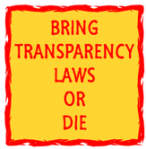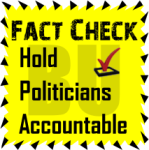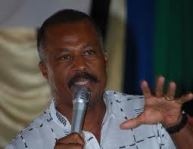 Barbadians will brag to all that we have practiced a democracy in the post-independence period which is the envy of many countries. Regrettably most Barbadians define a democratic system of government as the freedom we have to vote every five years, or on the odd occasion when a by-election is called. A democratic system of government loosely defined is said to be when the government is controlled by the PEOPLE using a free electoral system. The business of managing democratic systems are becoming more and more challenging because of modern complexities?
Barbadians will brag to all that we have practiced a democracy in the post-independence period which is the envy of many countries. Regrettably most Barbadians define a democratic system of government as the freedom we have to vote every five years, or on the odd occasion when a by-election is called. A democratic system of government loosely defined is said to be when the government is controlled by the PEOPLE using a free electoral system. The business of managing democratic systems are becoming more and more challenging because of modern complexities?
In order for any democratic system to work well the PEOPLE need to organize within the system to ensure that their interest are kept on the burners. This situation has given birth to Non Governmental Organizations (NGO’s). It is clear that at this stage in our development the role of the NGO must assume a greater participation in our democracy. We urge the BU family to give the NGO’s their support. BU commit to work with the NGO’s in Speaking up on the issues.
Non State Actors (NSAs), especially NGOs are being told to rise to the challenge of national participation if they want to help shape the country. This is the message from the Chairman of the Non State Actors Panel, Mr. Rodney Grant as the Panel prepares to host a workshop on project proposal writing starting Monday 22nd September 2008.
The workshop will be for two weeks during the evening only and is attracting mostly grassroots organisations and community groups. It is designed to build the capacity of these organisations to access developmental funding. According to the Chairman, this will go a long way towards easing the pressure of fund-raising which is usually tedious, involving a lot more work than the value of the small amount of funds raised.


















We know that many of you don’t give two hoots but you should.
ROK said a mouth full when he said that NGOs should be represented on all natioanal boards etc.
I believe however that the senate should be made up of representatives of NGO’s and special interest groups where each member would be voted in by his or her organisation… Needless to say that each political party of merit would have a representative as well. In fact any organised collective that represents more than 10,000 people who reside here should be able to apply for a seat in the Senate.
The obvious opposition to this type of senate would be that it would ‘make the country ungovernable’.
But for me I would have four or five sitting members representing my interest. Now that is true true democracy.
ROK we are interested to know what initiatives the NGOs propose to get sitting on Boards etc, and we mean key Boards.
Yes, Barbados needs to recognize NGOs for exactly what they are. They are modern-day missionaries who come in under the pretense of offering aid and direction when they are actually nothing but another arm of the imperialist. Just tear away their layers and you’ll see exactly who they answer to ….. their funders. Very DUPLICITOUS.
Many NGOs have access to serious resources and funding – and contrary to what Hopi says, most NGOs at their root levels are simply trying to help.
They may not always be sensitive to local culture or needs and thus appear to be trying to “impose” solutions that don’t work locally – but once again they are sincere and have access to big dollars.
Thus it is important to work with the NGOs if for no other reason than to channel their energy and resources into projects and solutions that meet our needs.
The big problem for NGOs in Barbados is that we as a culture cannot meet their requirements for accountability with the funds and resources that NGOs deliver.
This is both a legal issue – where we lack the laws that are a requirement for some large NGOs – and a cultural issue.
Sometimes we can bully our way into getting grants – like Owen Arthur did in 2007 with the EU money to restructure our sugar industry. The EU wanted a timetable and a series of goals that had to be achieved. The EU money was to be released to Barbados in stages as each goal was achieved.
Ha! They know us too well.
But Arthur called them racist, controlling, imperialist with an agenda etc etc etc. He bullied them using the old “slavery guilt” and the EU gave us ten million.
Where did the ten million go? What was achieved? What plan was followed and what were the goals?
You know the answers to all those questions.
And so do the NGOs that are waiting offshore with millions. Most of the NGO money goes to those countries and local projects where the people want a “hand up” not a “hand out” and where there is accountability and controls.
Barbados will never be able to receive anywhere near the level of NGO support that we could – until we change our laws and our culture.
Marcus
@Marcus BFP
While it is true that many NGOs are at the mercy of government funding, others transcend that and because of being part of a global network can now access external funding and technical resources. The NGOs that can use the global structure must act as trailblazers for the others who are domestically funded.
We should focus on can do and not cannot!
Hi David
It is actually the external NGOs that are independent of government funding that have the tougher accountability requirements! You see, philanthropists like Bill Gates, Berkshire H. and so many smaller but very active donors didn’t make their money by being stupid.
When they give it away, they want safeguards, accountability and measurable results. As a culture, we fail in these areas miserably – to a large extent due to the past 15 years of wrong-example leadership by successive governments.
And that includes the current DLP who have not introduced a single measure that would bring even transparency to their spending. We’re not even talking about ITAL legislation – we’re talking about current practice.
Everything is still secret. Nothing is published, no contracts, no list of government contractors and current projects. Nothing. Not a single action to make the daily actions of government more transparent.
The DLP don’t want to do that because with transparency comes accountability.
The NGOs see all this, and in these tough times, the money goes where givers know it will be well spent…
… and that isn’t Barbados
@Marcus BFP
We understand the point and we agree. We were thinking of like-minded rich NGOs as oppose to individual philanthropists but your point in taken. It is why our first comment to ROK et al was to list the initiatives they have planned to move the movement forward.
Under 40% of money donated to charities and founfations actually reach their intended targets. The bulk is spent on admins that are not that transparent. What is also not transparent is how the decision was made for example, to have all of Barbados’ secondary schools and the UWI teach microsoft products as standard fare. Transparency in what it takes for a very vocal member of an NGO to become a minister and spin so readily on a coin on an issue as important as the EPA.
Transparent on what BFP’s real geopolitica agenda really is. Oh you who is without sin…
Marcus BFakeP…..
“Most NGOs at their root levels are simply trying to help” Verbal Diarrhea!
What happens when you go further up?
Stinking, corrupt Bill Gates and Warren Buffet. The same demons who fund Planned Parenthood i.e population control of the brown and dark-coplexioned peoples, very Malthusian in thought and deed. Same sponsors, pushers and donors to the vaccine program throughout Africa to put the final nail in their coffin. The same toxic vaccines that are wreaking havoc on your lives. Some models to emulate, huh? And yes they did not become money rich by being “stupid”, they did so because we, the people are STUPID. Just follow the money, look at what both of them invest in. I say NO stinking NGOs in Barbados because we are already on a slippery slope. Take control of your own lives don’t allow others to think for you.
Funny how the media does not mention the WHO’s involvement in the spreading of so many pathogens around the world or any of the things that are mentioned in the immediate above, yet you will quickly hear of the death count of Chinese children due to tainted milk powder rising to THREE.
David et All at BU
I’ve been meaning to say Thank You for allowing us free expression of thought that runs the whole gamut on your site. Too bad some of us can’t say that about BFakeP. What a shame. Again Thank You.
BAFBFP…..
A lapdog can’t bite the hand that feeds it, hence we have free expression of thought and free flow of info here at BU. Right now the sentiment of the Western media is anti-Chinese and hence your little lapdog media in B’dos will follow suit. But why are they anti-Chinese? I leave that to your media.
As a consumer advocate, we are very aware of how difficult it is to motivate and energize the poulation in Barbados to do somethings for themselves as opposed to leaving it up to something called “the government”. This type of inertia is also evident when dealing with NGO’s. As will be seen from some of the comments here, people already have false perceptions of what an NGO is and they act according to that perception.
We at consumer watch are still struggling to in terms of motivating the populace and get them hungry to action for themselves.
In spite of the much touted education system in this country, too many citizens are unaware of their rights or in some cases just don’t care, as long as the particular thing does not or is not affecting them. Of course its another story when they are affected.
However, we will continue to soldier on, believing that some day soon the consumers, and by extension, the population will wake up to the important role which they have to play in order to maintain democracy in the true sense of the word.
The following post was rejected by BFP. It was in response to another attemp at China bashing by them….
Yet another diversion away from the far more serious situation of the deteriorating confidence in the US dollar and the bursting of the bubbles that have sustained US businesses on Wall Street for decades. China’s milk problem has killed 3 children, how many has the US military killed over the years in what is turning out to be a vain attempt at curtailing the inevitable that is happening today?
David,
I must thank you for this discussion on behalf of the NGO community. many of the comments put the finger on some of the problems.
First to answer your question of the initiatives for getting the NGOs on Boards and committees and I hear you when you say the “serious ones”.
I must say that a strong lobby by BANGO starting from 1997 have seen a gradual movement of NGOs on Boards and Committees of Government; including the serious ones.
Today, there is hardly a board or Government committee that does not have an NGO on it. The next step is to entrench the Movement into the legislation as they have dome with the unions and the private sector; so that the NGO is always a member of the board, whether Government changes or not or whether or not the board term expires.
After taking back up BANGO in 2001, not only did the lobby intensify, but the Government responded. However, there was one dissapointment and another battle we had to fight; Government was hand-picking the NGOs and even inviting who they wanted (friends) from the NGO to sit on the boards. Sometimes the President of an organisation would not even know that the NGO is being represented on a board.
Of course they could not do that with the unions or the private sector but they wanted to do that with us. I remember my stint on the HIV/AIDS Commission. I kept telling the Chair that BANGO was not in the business of HIV/AIDS programmes, but they refused to stop appointing me.
I told them that the AIDS Society of Barbados was the organisation that should be here with the other organisation CARE Barbados, but I was pulled aside by the Board Secretary and told that they wanted BANGO because we had a wider view of Civil Society.
That did not convince me, but little did I know that I was in the middle of a political fallout. Took me nearly four years to find that out. It seemed that what became the NHAC was an national AIDS Committee under the last DLP administration where members of the AIDS Society were making a serious contribution.
When the BLP came to office, the programme was seen as a DLP one and those who were helping the committee were branded DLP, including the entire AIDS Society.
I had a meeting with the President at the time and he was so bitter about it that he refused to be part of the Commission as a representative of BANGO. He felt, and quite rightly so, that the Society should be on the Commission in their own right.
Sad to say, I agreed with him, although I did not tell him that. I had to think about the fact that here was BANGO, advocating for the inclusion of NGOs and itself wanted to back away from NGO representation on a board.
Unknown to the Society, I wrote two letters over a six month period, to the Chairman, one stating that I will be sending another representative and a second, which indicated that the AIDS Society was the proper organisation to be appointed to the Commission.
In the meantime, I stopped attending meetings and sent my Assistant Sec. General, who went but under protest to about two meetings.
Finally, at the end of that duration and after four years, the Government appointed the AIDS Society to the Commission, but that coincided with a changing of the executive in the Society; only after that particular President changed.
I want to dispel this myth about lack of accountability and transparency within organisations. As far as I am concerned this was used as an excuse or red herring by the last government so that they would have more resources to dispense patronage.
But you know what the funny thing is? In the same way that they talked about mistrusting us, is the same way they came under the veil of mistrust by the EU and as far as I see, the EU is trying to avoid giving out the money using some frivilous excuse.
Now we trying to describe NGOs as non accountable and non transparent. What would you say about Government? But we still pay taxes, right?
My advice to Owen, while addressing a gathering where he was in the audience was to allow the NGOs to take on their responsibilities. He nodded his head in approval but that was as much as I got out of him.
Let us take the Justices of the Peace Association as an example. The Justice Improvement Programme (JIPS) which was based on a loan of $17M, has a civil society component.
The JPA made a proposal for training under JIPS. We were told that the JPA can’t handle it. Of course they did not say that to JPA, they just did not respond to the organisation.
Since then (2003), the JPA, on its own initiative, hosted a series of training programmes designed to train JPs to better perform their role in the community. Needless to say, the JPA representatives should be on their way to participate in a Commonwealth meeting of justices in Africa, sponsored by the Commonwealth.
In other words, while Government had the money and did absolutely nothing for Justice Improvement in Barbados, The JPA must be lauded for raising the funds, managing them and making a serious effort to improve justice in Barbados.
Of course, when asked by the consultant sent to evaluate the programme what was done in Barbados, I could only point to the work of organisations, struggling to do something such as MESA, JPA and others contributing within and outside the penal system with no help whatsover from IADB or Government.
We also had to let it be known that the JIPS programme would be better served in the hands of Civil Society rather than Government.
I will tell you what I have experienced in the last 7 years or so. BANGO has become known as a one-man show, for the simple reason that although we have a network of organisations as well as many leaders of those organisations which work along with BANGO, very few of them were willing to travel the road that was required and most times when you look back, nobody is there.
If you have any idea of the number of organisations that was sent to represent BANGO, that ended up representing themselves you would laugh. Very few organisations were willing to identify with BANGO, even though benefitting through BANGO’s network and advocacy. They just were not willing to stand up for their rights.
In this regard, much respect to MESA, Pinelands Creative Workshop (Chair of BANGO), Universal Day Of Hope Trust, ICouncil for the Advancement of Rastafarians, Barbados Youth Business Trust, Council for the Disabled and the Justices of the Peace Association who stood up for BANGO during these dread times. Hope i did not leave out any. If so, I must apologise and will mention them at a later date if drawn to my attention.
Funding? There are no end to funds out there but you have to be very careful what you are accepting and who you are receiving from. You may find yourself trapped by “conditions”.
Those organisations which come to Barbados with funds are those who would tap funds for countries like ours, in order to do the programmes that our NGOs should be doing. This is because we are tainted by this mis-conception in the international arena and BANGO has had to be doing a lot of damage control.
But this is what allowed Owen to use funds that as far as I know, should have been for NGOs to conduct consultations and build capacity. Instead, Goverment positioned itself to spend this money, based on spreading the false impression that NGOs just ain’t ready yet.
So we had a national consultation on a National Strategic Plan and all the others done according to the agenda of the Government and the results they wanted to achieve. So then Government could cut us out by waving a NSP that had wide national consultation and use that for years to come.
I believe that these exercises were meant to undermine the capacity and ability of NGOs to conduct their own affairs.
All I would say to thsoe who would persist is that Barbados does have criminals but does that make all Barbadians criminals?
This game called politics
Before we go any further, we in the PDC must declare a bias; that part of our political mission in Barbados is to encourage and motivate any members of the broad masses and middle classes of people of Barbados to come and join the PDC, or to go and join any other serious people centered developmentalist parties in Barbados (clearly NOT the DLP and BLP), or – eminently better – to go and form their own serious people centered developmentalist political parties in this country, as some ways of seeking to successfully challenge the existing conservative elitist driven social, political, material and financial orders in Barbados.
With that out of the way, we must state the most ( NOT ALL ) of the Non- Governmental Organizations (NGOs) should really think seriously about either metamorphosing into serious people centered developmentalist parties, either individually or collectively, or having besides these existing NGOs they the leading members of these NGOs should use, if they can manage it, their skills and wherewithal to bring about their own serious people centered developmentalist parties in Barbados.
For some Non-Governmental Organizations ( NOT particularly those members of NGOs who are already members of the DLP and BLP) must NOT be contented with simply accessing state power to assist in the policy formulation, the decision making processes, to assist in the interest aggregation and communication and articulation affairs of which ever government DLP or BLP government is in office. Rather, these organizations must realize that Barbados has to reach a stage where true and genuine sovereignty lies in the hands of the people of this country, and NOT – as it is right now – remaining indefinitely in the hands of a coterie of individuals in the parliament and government of Barbados. They must also realize that they must play a significant role in Barbados’ reaching such a stage, by themselves seeking state power, and by way of seeking such making sure that the democratic path on which Barbados is on is grater solidified and maturing properly than now.
Finally, that is why whenever a PDC led Government comes about in this country there shall be laws passed that shall make sure that constituents debate and passed the laws of this country in Constituency Assemblies established across the country – thus true and genuine sovereignty lying in the hands of the people of this country. What NGOs must know that is that it will take more than the PDC and the other new party to successfully fight the leading players and principals of the DLP and BLP who are primarily about political exploiting, politically economicaly dispossessing, and socially marginalizing the broad masses and middle classes of people of Barbados.
PDC
@ PDC
I think you need to study a little closer, the political spectrum and the role of the political players.
When we talk about politics, we narrowly focus on party politics when really, party politics is but just one movement within the political spectrum. Politics is as pervasive as life itself.
NGOs will never be in the business of capturing political power in the same manner that political parties will never be NGOs. Just as party politics has its culture, so too do NGOs. Look at the nature and characteristics of NGOs.
They are voluntary. They rise up when necessary to deal with issues and when those issues are no longer pertinent they disappear.
NGOs are formed to fill a void which is created by the rest of the society. They essentially stop people from falling through the cracks. NGOs are the social and economic mop-ups, trying to repair the damage caused by Government and the private sector for that matter.
NGOs are about damage control; defending the rights of people; feeding the hungry; helping up the poor; providing shelter; helping people deal with the bureaucracy, etc.
NGOs spring up from the hearts of people and they need to remain autonomous and non partisan in order to properly serve the people who created them for the purpose for which they are created. There is no pressure to do this or that. They can stand objectively and see. They help all whether P, B or D.
The political party on the other hand (and don’t care which one) seeks power. They find themselves with those who would do anything to capture political power. Employ people with all sorts of agendas and this part is the crux of the problem.
Let us be realistic. The partisan objective drives the party in the same way that Civil objectives drive the NGO. What will happen when the PDC wins Government and finds that in doing so, a lot of square pegs helped?
What will happen to party loyalty if you overlook the very people who get you there? What will happen at the next election? How will you maintain being in office without political patronage (i.e. rewarding the people who helped)?
These are the harsh realities of political parties so what will happen to the NGOs that capture political power? Only one thing, they will start to behave like a party. Lose their social consciousness and change their character; one time. If they don’t, then their term of office will be very short.
NGOs are here to put pressure on the system to provide for all, P, B or D. They are there to keep Government in check as far as the safety, survival, security, life, happiness, etc. of the people are concerned.
Because of this work, NGOs are best able to advise Government on policy by sharing local knowledge. NGOs are research driven from the point of view that they act on information and situations which are real.
When citizens decide to start an NGO, it is because they have already identified the problem and the solution. The NGO is then at a stage where they are able to plan an action that will activate a solution to deal with the problem.
As a result, NGO programmes do not fail like Government’s because there is the participation of the very people affected and afflicted. Herein lies the importance of the NGO, even one-man NGOs (these are internationally recognised too) which in a lot of cases are those that feed the poor, help children with their schoolwork, seek out shelter for the homeless, or even come up against Government for the rights of others.
In any country there are systems. Government is decided based on elections, for example. This is a constitutional principle which is employed to avoid civil war in any country.
So when the people of Barbados decide on a Government, the individuals that make up the Government are the official actors of the state.
Now, the constitution also charges the Government with “good governance”. What does this mean? That they have a duty to involve the population in the governance of the nation. This means that the Government has a duty to extract local knowledge from the population and cause it to impact on its decision making.
Hence, the one institution that constantly collects and rationalises local knowledge is the NGO movement. That is why it is so important to have at least one NGO on every authority and committee of government.
The strength of the NGOs is in their ability to execute programmes and deliver fairly and efficiently. They have the ability to command order and respect. They have the ability to turn around lives but what they do not have is the wealth to do it and this is what Government has.
What I really want to get down to (cause I find myself writing some good wills in this blog) is that they have the ability to create a people’s culture based on participation in governance; which is what we need in Barbados.
As I said in a previous comment, we need to create a culture of living, where, whomever is in office would have to abide by if they don’t want to lose the next election by default.
At this time, we need to entrench the principle of good governance and once you recognise that Government is the official statesman, then it would be to lobby the Government to bring about this change.
Remember Clement Payne, whose motto was, educate, agitate but do not violate. This is the kind of wisdom that true civil society leader deliver, because they are conscious of where they stand in the political spectrum.
Finally, I want you to take a look at South Africa because if there was one hope of an NGO in Government, the ANC was it. You could not want more togetherness and a sense of nationalism to fight the apartheid Government.
However, like a true NGO, when the crisis was over, the ANC died as an NGO and was turned into a political party virtually overnight.
By the way, there is a movement among NGOs in T&T which is seeking to capture Local Government. No end of challenges. They sough out my assistance and I had to show them the realities and the contingencies they would have to put in place to preserve the NGO character of the governance. Now this is even more workable because Local Government is based on projects and programmes.
ROK….
Why don’t you send your last 2 postings here to Christine as well! Sounds very self-aggrandizing and very personal to me. Oh Sweet Jesus!
Hopi,
Maybe I did not couch it as I should have. Just got careless because of time but the message is that when you are dealing with NGOs, care must be taken to keep their integrity in-tact.
Interesting story on ANC. As you can see it is now the ruling party of South Africa:
http://news.bbc.co.uk/2/hi/africa/7626646.stm
To: ROK
From: The People’s Democratic Congress (PDC)
We are a little flattered that you have failed – in your response – to deal adequately with our proposition: ” that most ( NOT ALL) Non-Governmental Organizations (NGOs) SHOULD really seriously think about either METAMORPHOSING into serious people centered developmentalist political parties, either individually or collectively, or BESIDES having these existing NGOs they – the leading members of these NGOs – should use, if they can manage it, their own skills and wherewithal to bring about their own people centered developmentalist parties in Barbados”.
For, our CENTRAL argument is that most NGOs should NOT be contented with just visualizing and achieving ACCESS TO STATE POWER as the highest level they can go when it comes to the issue of the relationships that exist between the state and NGOs. Rather, most NGOs vis-a-vis the formation of their own political parties should individually or collectively seek to win and exercise state power as a means towards achieving greater ends.
ROK, given that we in PDC already know the about the nature and primary objectives and outlooks of many NGOs in Barbados, what we are positing is that some existing well functioning NGOs in Barbados are sometimes better placed and more forward looking than even parties at times in their dealing – professionally, technically, or otherwise – with many specific issues and problems facing the wider society, and therefore they must be made by some others to see these ingredients, et al, as being representative of their capacity to evolve into parties or their capacity to be strongly represented in parties that they could strongly back and that would definitely have at their forefront many of those issues and problems that they are accustomed to relating to in the country – never mind the fact of these issues and problems being allowed to be dealt with in an entirely different political electoral setting and esp. for the public and media to far better portray than now.
Moreover, whereas many progressive NGOs would be able to take many of those critical ingredients with them into government if they were to win government in this country, there can still be other NGOs out there that will continue to do the tasks that many of them have historically been accustomed to performing.
Finally, we are cognizant that in many parts of the world there are “green” parties, “independent” parties, “ultra-nationalist” and other peripheral parties in existence, and which enter into coalition arrangements with other major parties, wheresoever. Therefore, what is really stopping some NGOs in Barbados from having their own parties aimed at winning and exercising or even sharing state power and proceeding to directly do that which is so manifestly important to them and to others, and especially when we in Barbados have to see – in the final analysis – the coming to an end of both DLP and BLP in this country, and the replacement of them by other parties, and when we in this country have to see to it that sovereign power is eventually bestowed upon the people of Barbados??
However, ROK, we believe that it is a simple matter of the personal and ideological preferences of the leading players behind these NGOs – NOT to have some NGOs evolve into parties or to have their outlooks/positions represented in parties backed by them; rather than the particular culture associated with NGOs really being prohibitive of such particular political organizational developments and thrusts!!
In such a political dynamic like Barbados even the older parties have managed to adapt to things that were NOT normally associated with them in the past – the use of the party as a nation builder, the use of information/communication technologies, the use of entertainment packages, etc.to better interrelate with people in Barbados. So who are NGOs NOT to want to – structurally and functionally – adapt to or lead the way in bringing about certain political and other changes in this Barbadian society?? By the way is not the appellation: Non-Governmental Organizations, an oxymoron that is out moded in nature? Given that you are organizations that are already – to a great extent – involved in governmental affairs in Barbados?
PDC
PDC
I hear your concern. I even understand your concern. That is why Hammie went to Parliament.
What you say about NGOs bringing a different standard and a people’s culture sounds very good on paper, but I think that the path the non profit sector must take to achieve this, is that of governance.
There are many benefits here. First, once you establish a system of governance where NGOs are participating, don’t care which party is in office, governance will continue steadfastly.
This is the real goal and along with this there should be:
1. Clear guidelines as to the conduct of public or national consultations to ensure that the output of consultations are properly considered in the decision making process.
2. Boards must be legally composed to include NGOs.
3. Committees and Commissions established by Government should be part of the consultative and/or governance mechanism with Civil Society enshrined in law.
When you say “involved in Government affairs in Barbados”, I hope you mean national affairs and not in bed with any political party.
Indeed we are involved in national affairs and with the change in Government we are no less so. As a matter of fact, the Prime Minister entertained a delegation of NGOs to hear their recommendations for the budget.
We are still on committees and Boards and are consulted by Government Departments. After ten years of lobbying and working together with Government Departments, they have come to understand the value of the partnerships with NGOs.
While this may be so, we have just come out of a period where NGOs felt subdued. Even in terms of creating the partnerships with Government Departments, in a lot of cases, BANGO had to get the ball moving by representing the sector and gradually weaning the relevant NGOs into the arena.
So the last ten years was the struggle. With the change in Government we are now poised to take the movement further forward and on horizons which the last Government was not entertaining.
It was so funny how the Government paid lip service to BANGO when in the international arena because it was fashionable to show off your NGOs in action. In the last Barbados report to the UN Human Rights Committee, they even suggested that the NGOs were part of the Social Partnership which we know not to be true. See page 20 of the report at this link:
http://www.igloo.org/bangoonline/download-nocache/Library/peacesoc/unhumanr/barbadossp
The charge that the NGO leaders are holding back the movement is not on all fours with the facts. As I said in previous comments on this blog, we have had to diffuse BANGO which was headed in the direction of establishing a commanding position as the representative of the NGOs.
What we really need is representativeness, i.e. a mechanism where all interested NGOs can be a part. In 2005, the recommendation coming from a consultation with NGOs is manifested in Protocol 1, which is still to be realised and which we are working on steadfastly. See protocol:
http://www.igloo.org/bangoonline/download-nocache/NGO%20Sectors/ngocounc/ngoforum
There are some pillars that have to be constructed: Finance; a place to meet considering that there are over 900 NGOs in Barbados and if you ask each NGO to send a Rep then you are talking about a large assembly.
The Forum will provide the mechanism for the full participation of the NGOs. All Government or international agencies would have to do in communicate directly with the Forum’s secretariat.
By this method, we don’t have to get into the party politics. This would maintain the autonomy of the NGOs as well as their integrity. If we had the money upfront, it would have been already done because it is not hard, but it makes no sense without certain provisions in place to ensure sustainability, without depending on a subvention from Government.
I trust that this is useful.
Democracy derives power from the higher source of unity, freedom, equality and shared vision i.e. conscience of God.
By constitution, NGOs should be purposeful and strive to accomplish specific objects during their existence.
In such regard, NGOs are well-suited to deal with certain issues and problems affecting “people”, from the community level to the international level.
Experience in Barbados has revealed a grave dearth of responsibility and authority within the local NGO movement. Even though there are a few prosperous examples of progress, the general state of the NGO movement silently bellows the need for serious human resource development!
Should any Barbadian NGO just be allowed to participate in national affairs on the Governmental Boards before meeting certain standards of operation?
Should any Barbadian NGO just be granted access to resources without proving capability to plan and manage the said resources by pre-audit or due diligence assessment?
Should all Barbadian NGOs subscribe to a common Government Board admission policy?
Should all Barbadian NGOs adhere to a common Code of Ethics which may be vetted by Government authority?
Is it necessary for all Barbadian NGOs, which is a heterogeneous but finite collection, to speak under one voice?
In my opinion, once such questions are answered after objectively looking at the past and optimistically looking forward, and once the necessary processes and structures are integrated (and tweaked for best-fit) into the movement, NGOs can and should graduate from being “mouth organs” to real “instruments of power”.
Competence must precede proper participation otherwise we are well-prepared to fail.
And finally, performance assessment follows to provide feed-forward into the next iteration.
@kudos
You make some relevant points. Reading your comment brought to mind the fact that one of our TOP consumer bodies led by Malcolm Gibbs-Taitt has been able to get financing of 1.5 million (we thing) but here is the catch: his consumer organization has not gotten the buy in from 100 Barbadians up to this point.
This is a bif disconnect in our opinion.
@ Kudos
I note the questions but what I would say is that it depends on what good governance needs to get out of Civil Society in order to work.
The questions you put forward are easy to ask and you can be sure that they are used against NGOs rather than to come to their assistance. The real purpose of the exercise of governence is to extract local knowledge and bring it to bear on policy and decision making.
I see you ask five questions and I hereby number them 1-5 for convenience and reference. So my responses below are accordingly numbered.
1. Once an organisation is recognised as an NGO it should be allowed to participate in that capacity so long as it is made up of citizens of the country and does not have a party political agenda; Politics has its own arena. So if we are talking about transparency, the business of Government is the business of the people. People should be allowed to participate in their own business, according to the contribution they can make.
2. Yes. It needs not be money in their hands if they want to execute a programme, they can partner with another organisation. The most pertinent point here is that NGOs know their capacity or lack thereof. However, for the most part NGOs are not interested in money so long as they can get what they want. They may want training or food items or materials to help somebody repair their house. It may be a sports club that want balls or want somebody with a particular knowledge to addrsss their members.
3. Yes. Although it has been the case that NGOs sitting on boards have been responsible in terms of confidentiality, there should be a legal and binding arrangement. A look at the NGO Protocol you will see that this is outlined.
4. Yes but this should be done through a mechanism. So long as an NGO is registered it has passed the test for being a legal entity recognised by the state. Of course, Government reserves the right to recognise who it pleases; whether or not registered. Once we get a national body up and running, it should police the sector, identify who is who; act as a clearinghouse for NGOs; and just as an organisation is allowed to send its chosen representative, so should the national body be allowed to send its NGO.
5. Yes but within the context of recognition of the autonomy of each NGO. This is more about consensus and informed decision making.
Having answered your questions, inn my last comment I referred to how organisations are suppressed under a tight regeme and the fact that this is not healthy for the moral health and well-being of the country.
We therefore should be careful about the motive for asking these questions. Where there is a will there is a way and if the idea is to work with NGO, then they should be allowed to function in the same way that Government functions and with support.
NGOs do what they do to the best of their ability and if they can be given support to do what they are doing, they will do it even better.
@ David
You are mistaken about that 1.5M. That is the regional consumer body under Consumer International which is supposed to be made up of the Consumer bodies in the Caribbean and Taitt does not head that.
Never mind, we are watching very carefully. There is some involvement with the Ministry of Commerce here so there will be transparency. A proposal for consumers in Barbados went through the Ministry. I am not sure what the Ministry recommended.
However, there is a Committee under the Ministry of which NGOs are members of including BARP, BANGO, Barbados Consumers Association (BCA is very new and structuring itself).
Thanks for the clarification ROK. We would have thought however that initial monies gotten from international agencies will would have targeted mobilizing involvement of people in the NGOs, specifically consumer organizations. We are concern about how do we involve as many people as possible in the process.
You can only involve those that come forward.
@ROK
You have answered well but I hope after objectively looking at the history of Barbadian NGOs (even though we are part of this history). Look at the comment you made above – “You can only involve those that come forward” i.e. voluntary organisation.
Thank you for improving the readability of my earlier post by using numbers. I believe in enhancement towards optimum performance hence my honest appreciation for correction!
1. The issue is operational standardisation NOT legal recognition. It is of my opinion that a two-paged registration form that is hardly ever updated speaks very little about the operational performance of most Barbadian NGOs. One enhancement that I recommend is an ongoing re-registration process and a form that records progress on specific operational benchmarks.
2. Money/resources in hand without ensuring competence and provision of guiding principles is the ancient brew for mismanagement and corruption. Extending your example, try to quantify what percentage of the food items actually reach the needy or how many balls end up with the children of the distributor(s). I recommend structured plans-of-action to undergo pre-audit and due diligence assessment as criteria for resource mobilisation by any Barbadian NGO – not necessarily a long, bureaucratic process – but a mechanism that reduces the likelihood of failure.
3. Good work on the NGO Protocol. It is a milestone document that I really hope can be implemented soon before its content becomes obsolete considering the volatile environment and ever-changing issues facing NGOs!
4. The national NGO body and the NGO Code of Ethics go hand in hand! So long the NGO body recognises and treats each NGO as equal as well as practising “democratic” processes such as elections and voting of appropriations (if there is anything to appropriate)!
5. You have answered yes, and maybe you are referring to the national body being a forum and clearinghouse for consensus decision making, information management, Government Board participation… However, once the sectors grow (~900 NGOs total), how can one voice advance such a diverse and heterogeneous collection? It is not an easy task to mix bread and butter issues, especially when constituents are hungry! I recommend that Barbadian NGOs need a practical amalgamating structure that is flexible and relevant to the current/short term; the long term NGO plan should incorporate a comprehensive feed-forward mechanism.
Finally, voluntary organisation is good, especially for dealing with sensitive social issues; however, competence and performance are the metrics I believe will make or break the Barbados NGO movement.
If you experienced a gangrene NGO wanting to help a community but needed more help than it could reasonably give, should the NGO not have to be healed before seeking to heal the community?
Makes sense huh?
Come on this can’t be rocket science to establish a framework to manage NGOs in Barbados, best practices must exist elsewhere.
Hi David!
Rocket science is well-documented and well-experimented. Rocket science is not any “harder” than NGO science. Both, like any other science, is made possible by careful scrutiny and testing.
I agree fully that establishing the framework is not rocket science.
However, OPERATION of the NGO framework should incorporate the “not yet perfect but forever seeking” quality assurance processes!
Best practices do occur elsewhere, and even within specific locales and within given contexts and environments.
From where did the “first” best practice(s) originate?
The problem is not best practices but sustainability.
Well since ROK has narrowed the problem from two words down to one manageable word, I must ask!
Are the institutional parameters set forth in the NGO Protocol adequate to ESTABLISH and SUSTAINABLY OPERATE the NGO movement of Barbados?
Once again, I ask for objectivity – we all have the documentary evidence to search!
See protocol:
http://www.igloo.org/bangoonline/download-nocache/NGO%20Sectors/ngocounc/ngoforum
If SUSTAINABILITY is the problem, why isn’t the NGO Protocol in OPERATION since 3 years!?
Kudos
I think we have to step back to the nature of NGOs in order to answer your questions. Yu see, NGOs are not as willy nilly as you think. people who form organisations must have already have some coordinating and leadership skill.
Further, we have this problem of distrusting the masses, especially many of us who had the benefit of an education, but you don’t have to have a formal education to be intelligent.
We further have to be careful that we do not exceed the human, civil, political and economic rights of the commitment we made under international conventions. The language is quite clear:
Article 25: “Every Citizen” shall have the right and the opportunity, without any of the distinctions mentioned in article 2 and without unreasonable restrictions.
http://www.unhchr.ch/html/menu3/b/a_ccpr.htm
In this instance reasonable refers to legal provisions, such as qualification to be a candidate in the elections for example, not being declared bankrupt or mentally ill, etc.
It does not say every intelligent, able-bodied, young, or else. The same covenant talks about every citizens right to enjoy the economic resources of the country, so to discriminate and say that a person can’t do this or that is against the covenant.
Unless you telling me that we should throw away the covenant, the issue of capacity and skill does not hold. We are dealing with a society, and just as the Skipper introduced free education so that we could become educated enough to vote him out, if we want them trained in particular skills, it is the duty of the government to fork out the money to do that.
Let us put it this way, if you withold the resources from them you deny them their human rights and I say that for this reason. I know a rich man, quite without any education, who once told me that he would never go to school to study because he can buy the lawyers, doctors, accountants, managers, etc. to advise him… but he makes the decisions based on the information they bring to him.
So, if you deny them the resources they can’t get the help. It is impossble for each NGO to have a lawyer, an accountant and a consultant. So what do you do, stop them from operating? You simply have to support them within the capacity they have because as I said, the most critical asset of NGOs are their store of local knowledge.
I must say Kudos, that the arguments you have advanced are the same problems the provisions in the Covenant were meant to disperse. What if Hammie La formed a party and became Prime Minister? Who could stop him from taking up the post without having to deal with the army and the police, not to mention his supporters, and you know what? According to Plastic Bag, “They would not get a day”.
@ Kudos
“If SUSTAINABILITY is the problem, why isn’t the NGO Protocol in OPERATION since 3 years!?”
The document in itself does not provide the sustainability. I would like you to answer this question, given the document at your hand, what would make it sustainable? See how best you can quantify or qualify it. What resources would it take?
@ ROK
First let me announce the following disclaimers (I thought I implicitly did this by participating in the first place): I do not think, neither did I express or infer, that NGOs are willy nilly; I do not distrust the masses; I never questioned the intelligence of any human or NGO leader!; I am not against the Covenant that was referenced; neither do I hope to contradict the human, civil, political or economic rights outlined therein.
What I am saying is that when I am ready to build a house, I look for competent builders and craft-persons. When I am ready to plant my food, I look for quality seeds and good fertilizers. When I am ready to build a solid team, I look for interested and capable individuals. In each instance the reason is because I am increasing the likelihood of success!
I am not advocating that NGOs should be denied given resources. I am simply urging that there must be practical and viable NGO plans to invest the money into? Once the upright and responsible NGO leaders step forward with well articulated plans, I see it imperative that they be funded and assisted to accomplish the particular public good.
Each NGO does not need its own lawyer, accountant or consultants but I recommend a professional network should be readily available to all NGOs to strengthen the NGO capacity – kinda like a serious technical assistance institution to facilitate NGOs.
If Hamilton Lashley were to form a political party, why would that be a problem 🙂
“The document (NGO Protocol) in itself does not provide the sustainability” (ROK). Kudos thinks that it at least outlines a sustainable OPERATION!
ROK’s question – given the document (NGO Protocol) at your hand, what would make it sustainable?
In my opinion, the implementation of the NGO Protocol requires an independent policy entity and management body, a cadre of NGO leaders OPERATING with collective purpose and rules, and facilitative team of specialised consultants! Of course the implementation requires the necessary physical facilities and financial resources.
I assume the collective purpose may include accessing funds, specialised human resources (i.e. the team of consultants), seats on Government Boards, information, statistics…
The initial cadre of NGO leaders should be limited and comprise no more than 7 sectors – this is a best practice to ensure proper formation and establishment of procedures and structures.
The independence of the policy entity ensures democracy and seeks to reinforce the need for equality among NGOs. Likewise the independent management team ensures that work is not doubled for NGO leaders who are already responsible to NGOs and have agendas to fulfill.
The consultants should be accessible to the management as well as the constituent NGOs on a as-needed basis.
Within the OPERATIONS of the NGO system, the appropriations should be voted by the independent management team with cases being presented by NGO leaders on a one-on-one basis.
Following the initial phase of implementation, other NGOs should be registered into the appropriate sectors.
I think that such an implementation considers several aspects of sustainability and incorporates best practices as proven in other civil society institutions!
This model is not impervious to some shortcomings but it is practical enough to OPERATIONALISE and begin iterating!
Good answer Kudos, except that the number seven is not what you want. What you want are those interested, even if it is ten. You should not limit yourself at the outset, you may find that some may feel alienated by this and that may pose problems down the road.
So basically, what you want are those sectors that are sufficiently ready. You may even put a qualification and say that it would take a minimum of three NGOs to make a sector.
You have taken a lot into consideration:
1. Physical structure
2. Work loads
3. Planning Committee
4. Initial Funding
Immediately too, you will need a secretariat staff, Liaison Officers, a project department; a fairly large staff.
This is where the sustainability comes in. There must be a highly profitable project or projects otherwise we will always be short-staffed, with people coming and going.
Think too about our CARICOM neighbours and how we will be able to get together with them. The expense of travel and accommodation especially.
The contingent factor that makes this not only unique but expensive, is the sheer size of the sector, bigger than the unions or private sector and will need a large but synchronised and efficient bureaucracy.
I am very happy to see your answers above. There is still much hope.
Hi ROK,
Sustainability! The life of all organisations and organisms follow similar patterns that are visible after careful analysis. The trend is always to grow up then eventually downsize! The initial LIMIT of seven was recommended as the minimum sample size to yield useable results to feed-forward into the NEXT phase of the OPERATION. The aim is to SUSTAIN and not simply accommodate. It is expected that growth will take place as NGOs become primed/educated/trained/registered for interfacing with the new NGO System.
By phase 2, certain processes would have been tested for accessing funds, mobilising specialised human resources, recommending NGOs to sit on Government Boards, gathering of information and statistics.
Now the system is more capable of coping with maybe fifty of the national NGOs… It’s exponential systems thinking!
The secretariat staff and officers is another way of describing the independent management body aforementioned. The staff does not have to be too large BUT efficient, competent and full-time! I agree with the Liaison Officers (maybe 2 – phase I) to interface between the NGO System and the constituent NGOs as well as the Project Officers (maybe 2 – phase I) assisting in the standardisation and strengthening of project proposals from constituent NGOs. For specialised components of the proposals, the consultant team should be tapped accordingly. As ROK said, making the projects “highly profitable”!
In terms of looking at our CARICOM neighbours, I think that phase I and II of implementation should ONLY seek to foster simple knowledge sharing networks that will reap substantial benefits in the medium to long term. For the short term, too much emphasis should not be placed on our CARICOM neighbours. The overall development strategy should incorporate leveraging ICTs (maybe during phase IV) to facilitate regional and international growth. Initial ICT integration should mainly focus on raising the general ICT skill levels locally!
Remember, every natural creation grows and dies – only converting energy into other forms. Also, everything is finite and limited except no-thing!
PDC,
I remember engaging you on the politics of NGOs. I remember talking about the characteristics of the NGO, including its role in the political spectrum.
I also remember saying that anytime an NGO seek political power, it becomes a political party.
It is interesting to note this report coming out of South Africa:
“Former defence minister Mosiuoa Lekota’s bold announcement that he intended to leave the ANC would lead him and those who followed him on a disastrous path, Cosatu general secretary Zwelinzima Vavi has said.”
The ANC is obviously not an NGO anymore as it claimed in the past. Moreover, the fact that it would challenge the emergence of another party out of its own bosom is clearly not in keeping with the spirit of the NGO Movement; that is not even a democratic position to hold.
Unless we understand our role in the political spectrum and respect it as the true position to hold, then steadfast in this path shall we create the society with the checks and balances that would keep political power in check and create lengevity and continuity for good governance.
See entire article:
http://news.iafrica.com/sa/1038998.htm
Woah! I’m really digging the template/theme of this site. It’s simple, yet effective.
A lot of times it’s very difficult to get that “perfect balance” between user friendliness and visual appearance. I must say you have done a fantastic job with this. In addition, the blog loads extremely quick for me on Opera. Excellent Blog!
and what about the barbados tourism club, headed by a mr roy raphael. for eden lodge….
I am extremely impressed with your writing skills and also with
the layout on your weblog. Is this a paid theme or did you
modify iit yourself? Either way keep up the nice quality writing, it’s rare to see a great blog like this one these days.